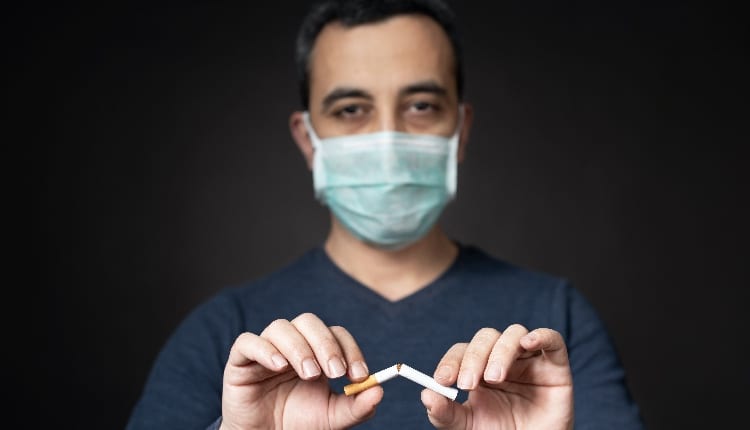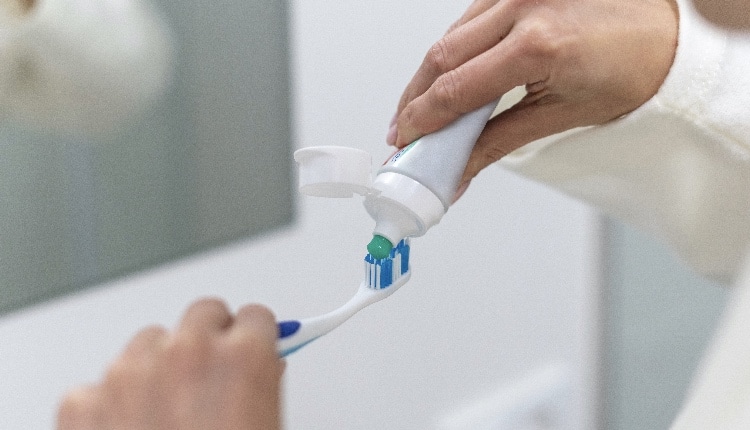
Black hairy tongue is a condition of the dorsal tongue, on which there is an overgrowth or elongation of the filiform papillae. The results are a mat-like surface that entraps bacteria, fungi, and food debris. It is an alteration of the microbial flora that is caused by broad spectrum antibiotics, hydrogen peroxide, carbamide peroxide, bismuth subsalicylates (for upset stomach), smoking, alcohol, radiation therapy of the head and neck, systemic corticosteroids, chemical rinses, and medications that cause xerostomia.
Photo Credit: Deagreez / iStock / Getty Images Plus

Diagnosis
Although the term black hairy tongue is more familiar, the patient may also have a heavily coated dorsal tongue with a white clinical appearance. Color changes are caused by chromogenic bacteria and the color can vary from white to yellow to tan to dark brown or almost black. It presents with elongated papillae, covered with a significant amount of keratin on the surface. Black hairy tongue is usually asymptomatic, although the patient may complain of bad taste, oral malodor, or increased gag reflex. Concern regarding appearance is also common. The diagnosis of black hairy tongue is made through clinical and historic diagnosis. Microscopic evaluation is not necessary. A white heavily coated tongue is sometimes mistaken for a form of candidiasis.
Photo Credit: AntonioGuillem / iStock / Getty Images Plus

First Step
The first step in the treatment process is to remove the possible etiologic factors that may contribute. If the patient is taking prescription medication, a conversation with his or her physician is necessary before making any changes to the treatment protocol. The patient may need to complete a prescription, or the physician may elect to prescribe another drug.
Photo Credit: Oleg Elkov / iStock / Getty Images Plus

Self-Care Regimen
Patients’ at-home self-care regimens are in the purview of oral health professionals. Review patient history and identify the products that may be contributory that can be easily changed (eg, hydrogen peroxide is a component of many toothpastes and mouthrinses).
Photo Credit: bernardbodo / iStock / Getty Images Plus

Smoking Cessation
If the patient has problems with an upset stomach, he or she may be using significant amounts of bismuth subsalicylates. Depending on his or her last medical appointment, it may be appropriate to refer the patient back to his or her physician. If the patient smokes, this is the perfect opportunity to encourage him or her to begin a smoking cessation program. Black hairy tongue is the least important oral pathologic concern when a patient smokes. Oral cancer prevention is paramount! And sometimes, due to the esthetic component alone, the patient may be motivated to quit.
Photo Credit: ilkercelik / iStock / Getty Images Plus

Oral Hygiene Armamentarium
For the best at-home oral hygiene regimen, the patient should brush the tongue with a soft toothbrush without any toothpaste. Toothpaste should be avoided due to the presence of chemicals or irritants. Brushing with water and sodium bicarbonate (baking soda) has also been effective. Tongue scrapers can be used, but because the filiform papillae are elongated, gentle brush strokes may be more effective in cleansing and removing the excessive keratin coating these papillae. Some scrapers, based on design (“rake like”) can be more irritating, or scrapers may be so flat, they only remove surface irritants. Remember, the dorsal surface of the tongue becomes matted in this condition, so brushing the surface should be more effective. Black hairy tongue usually resolves rather quickly but can recur, depending on etiologic factors that can be removed or altered. Optimal oral hygiene in general can help to control the condition.

